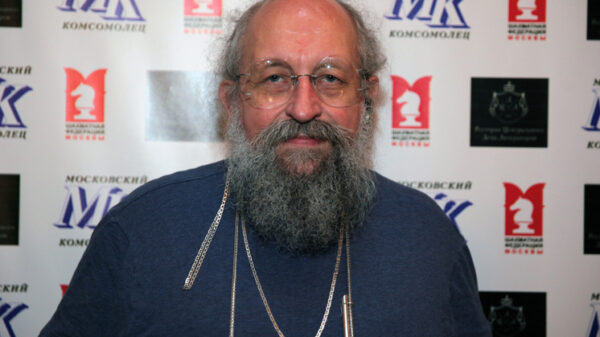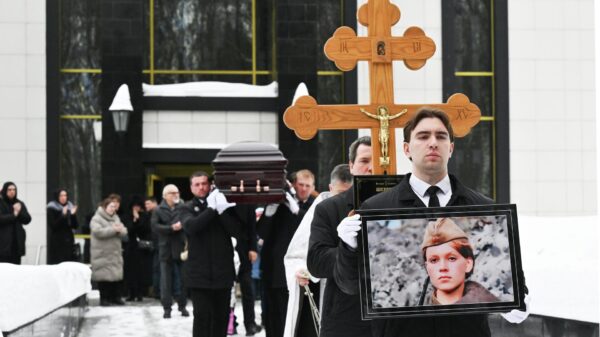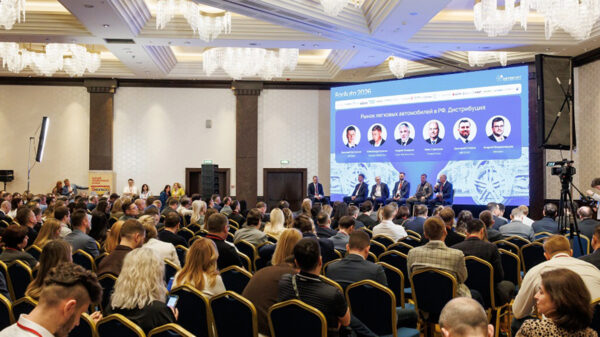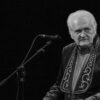 A shell crater is visible next to damaged high-rise buildings after an early morning Russian rocket attack on the city. Photo: Future Publishing/Future Publishing
A shell crater is visible next to damaged high-rise buildings after an early morning Russian rocket attack on the city. Photo: Future Publishing/Future Publishing
Today on Telegraph “Ukraine: The Last Podcast” we bring you the latest news from Ukraine, discuss the realities of combat in the Ukrainian counter-offensive and report from the ground in Kharkov.
Colin Freeman joined the podcast today, calling live from Ukraine. He shared his reaction to the strikes:
The missile strike occurred at about a quarter past two. It was a scene of absolute devastation. It was impossible to even make out which building was damaged. We understand that it was some kind of cafe, and rescuers with a bulldozer were still at the scene.
And there was a very, very large area full of corpses. Most of them were wrapped in white body bags, but some were still lying on the ground, which I think perhaps indicates the scale of the task facing the emergency services. The death toll we were told at that time was 51 killed and seven wounded, suggesting that virtually everyone in the building was killed.
Usually the number of dead exceeds the number of wounded, whereas in this time it was the other way around.
Colin continues, talking about his meeting with a local resident:
A man approached the scene and smelled of alcohol. He swayed slightly on his feet. He was very frank. He said, «Sorry, I've been drinking most of the day because my wife was at a meeting that got hit by a rocket and she's dead.»
He was completely distraught and said he spent most of the day looking for comfort and drink and wondering what he was going to do with the rest of his life. He said: “I love my wife. We were together for 38 years. What will I do with my life now? Just stand here and scream. What am I going to do tomorrow? Just drink, keep drinking for the rest of your life.”
It’s not often that you see grief so raw, but that time it definitely came through very, very clearly.
Listen to Ukraine Latest News, The Telegraph's daily podcast, using the audio player at the top of this article or on Apple Podcasts, Spotify or your favorite podcast app.
The war in Ukraine is changing our world. Every weekday, The Telegraph's leading journalists analyze the invasion from all angles — military, humanitarian, political, economic, historical — and tell you everything you need to know to stay informed.
Our< Strong> Ukraine: The Latestpodcast is your trusted source for the latest analysis, live reactions and on-the-ground reporting from correspondents. We have been broadcasting since the very beginning of the full-scale invasion.
Ukraine: Regular contributors to The Latest are:
David Knowles
David is head of audio development at The Telegraph, where he worked for almost three years. He reported from all over Ukraine during the full-scale invasion.
Dominic Nicholls
Dom is deputy editor (defence) at The Telegraph, having joined in 2018. He previously served in the British Army for 23 years in tank and helicopter units. He had operational deployments to Iraq, Afghanistan and Northern Ireland.
Francis Dearnley
Francis is assistant comment editor at The Telegraph. Before working as a journalist, he was chief of staff to the Chairman of the Prime Minister's Policy Council in the Houses of Parliament in London. He studied history at Cambridge University and in the podcast reveals how the past sheds light on the latest diplomatic, political and strategic events.
They are also regularly joined by The Telegraph's foreign correspondents around the world, including Joe Barnes(Brussels), Sofia Yang (China), Natalia Vasilyeva (Russia), Roland Oliphant (Senior Reporter) and Colin Freeman (Reporter). Also in London are Venice Rainey (foreign weekend editor), Katie O'Neill (assistant foreign editor) and Verity Bowman(news reporter) ). appear frequently to offer updates.


























































Свежие комментарии